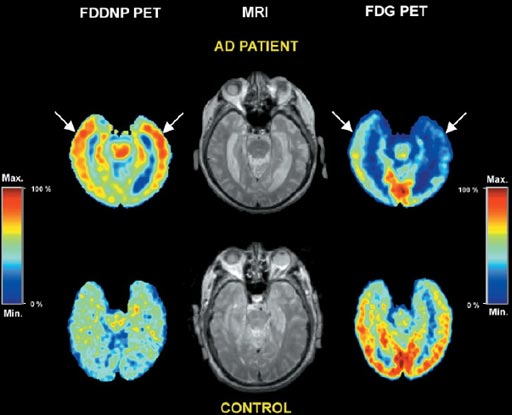Studies Reveal Pathway Linking Brain and CV Events
By MedImaging International staff writers
Posted on 01 Feb 2017
Researchers have for the first time found a pathway linking brain activity in the amygdala, elevated immune system activity and inflammation, and cardiovascular events in human beings.Posted on 01 Feb 2017
In the first study the researchers analyzed imaging and medical records of nearly 300 patients who had undergone Positron Emission Tomography/Computed Tomography (PET/CT) brain imaging. The second included 13 individuals who had a history of Post-Traumatic Stress Disorder (PTSD) and underwent fluorodeoxyglucose-PET (FDG-PET) imaging intended to measure amygdala activity, and the inflammation of arteries.

Image: An example of an FDG-PET imaging scan of the human brain (Photo courtesy of PubMed).
The research was led by the Massachusetts General Hospital and Icahn School of Medicine at Mount Sinai Hospital, and was published in the January 11, 2017, issue of the journal The Lancet. The complementary studies were conducted at MGH, and at ISMMS.
The results showed that prior levels of amygdala activity strongly predicted the risk of a subsequent cardiovascular event. Such activity was also associated with the timing of the event, to elevated activity of the blood-cell-forming tissue, and to increased arterial inflammation.
Lead author of the paper, Ahmed Tawakol, MD at MGH, said, "While the link between stress and heart disease has long been established, the mechanism mediating that risk has not been clearly understood. These findings suggest several potential opportunities to reduce cardiovascular risk attributable to stress. It would be reasonable to advise individuals with increased risk of cardiovascular disease to consider employing stress-reduction approaches if they feel subjected to a high degree of psychosocial stress. In addition, increased stress associates with other diseases, such as cancer and inflammatory conditions, including rheumatoid arthritis and psoriasis. So it will be important to evaluate whether calming this stress mechanism produces benefits in those diseases as well."













